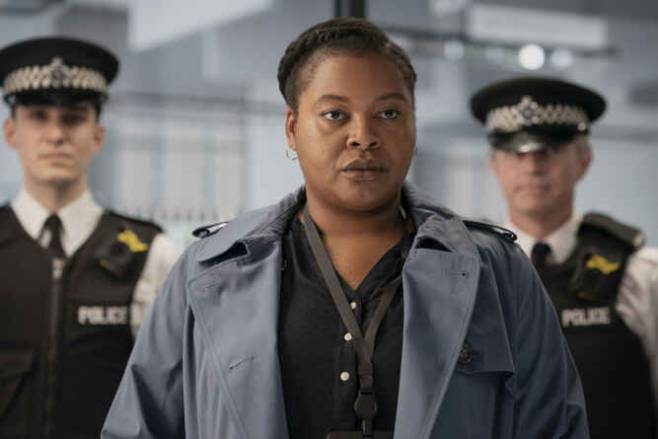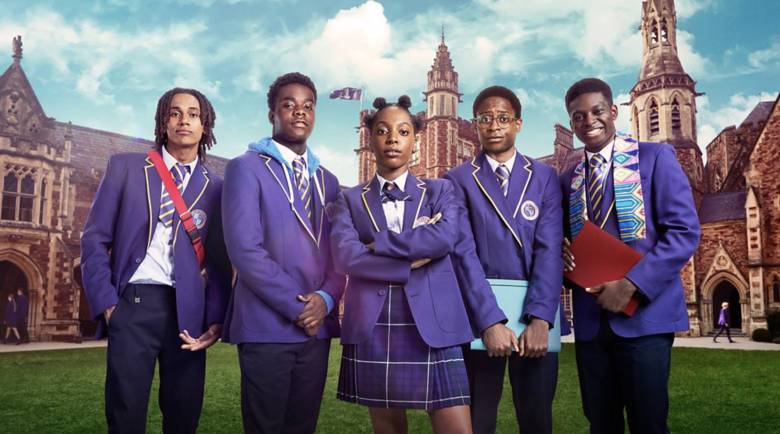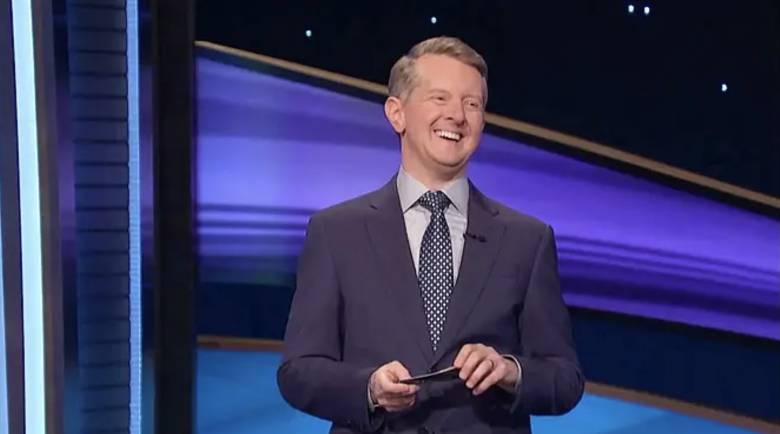Please can you tell us a bit about the genesis of the project, from initial discussions to bringing it to screen?
I had meetings with other people who were by and large lots of producers and executives sitting around the table. Eleanor from 42 just came in on her own and I had Googled her and knew she was a novelist and screenwriter as well. We had that shared background, and she was genuinely enthusiastic about me being involved.
Then, we talked about how the natural home for it would be the BBC because of that quality focus. So, we took the project to the BBC first and met Ben Irving. I turned in that script and then lockdown happened, and I thought “what am I going to do in lockdown?” I didn’t really feel like writing a book, so I decided to write the rest of the scripts on spec, even though the project hadn’t been greenlit. As soon as someone is enthusiastic about a project, I just have to go away and write it.
Then when shooting through Covid became possible, Ben Irving at the BBC said, if only you had the scripts, then we could fast track this. Then Eleanor said “ah ha!, We have. JP has written some spec scripts already”. So that was how it happened.
Could you tell us about the process of adapting your book to screen? What has been the most enjoyable element and have there been any challenges?
I understand there are some writers who would want to adapt because they want to protect their story. They want to make sure that no one messes it up or changes it too much, but I am the opposite. For me, the exciting thing is when the story evolves and adapts. You must trust the people you are collaborating with. I set myself a rule whereby I would need to have a good reason to say no to anyone else’s ideas. So that’s been the wonderful thing really. As more people came on board and seeing how they work, changing it and turning into this living thing is the lovely bit.
What was it about this story that made you want to turn it into a series?
It’s a book that is particularly close to my heart and it’s the first of my psychological thrillers to be written. I spent 15 years working on it. I always knew that there was something at the very heart of this – something very simple of taking the gothic tradition of a creepy, creaking, almost haunting house but flipping it so that it’s very modern and minimalist. Whereas most architects work with a client’s brief, with minimalism, it’s the other way round – you buy into the architect’s vision. Minimalism is almost like an architect’s brain in concrete, and you are inhabiting that brain and that can be a scary space to be if they are a controlling person, as Edward is.
There’s a line in the script where Simon says, “Our house has moods”. For me, that was always a key production thing that the house had to be capable of being austere, beautiful, threatening, claustrophobic and welcoming at different times. Jon Henson had the challenge of constructing something that had that visual richness but could also feasibly have these minimalist intense rules.
In fact, one of my favourite lines in the first episode is where Jane says something about Edward being a minimalist and Edward responds by saying “I don’t actually think of myself as a minimalist, I’m just of a perfectionist, but when you take away things that are imperfect, it’s funny how much is left” It’s a real insight into his obsessive, controlling, nature.
Without giving too much away, can you tell audiences some ways in which the series differs from the book?
Plot wise, it’s simpler because we cut out some of the twists and turns. But it’s extraordinary because I came into it completely relaxed about changing things, but it has ended up being very similar as an overall plot. The main difference is that the book is very much within its genre – it’s a thriller and I really wanted to make it a page turner, so it’s all about the plot and the pace. In TV, you have a chance to unpack people’s characters a bit more and I would say that the scripts are more nuanced and character-driven than the book is, which is quite unusual for TV programmes. That’s been one of the most fun things about doing it.
The Girl Before has a fantastic ensemble cast. Can you tell us how the four main actors embody the characters on the pages of the script?
They are an incredible cast. We were so lucky to get them. Jane as a character is quite reserved, professional, disciplined, and high achieving. And Gugu brings all that, but one of the things that Gugu said when we had a conversation with her very early on, was that she wanted to see the cracks in Jane’s facade. She’s been through this tragic experience before the show starts, and we just get a sense of her inner life, turmoil, tragedy, sadness, and anger. I think Gugu has a real arc over the performance of the four episodes. She goes on a sort of journey, just like a lead character of a movie and I think that’s an amazing thing to watch.
Emma, the character played by Jessica, is more impulsive, mercurial, and changeable and has also been through tragedy. What Jess brings to it is a real sense of Emma’s vulnerability and likeability. You get a sense of who she was before bad stuff happened to her and who she could be again. She’s almost rediscovering it over the course of the four episodes, but then another tragedy happens.
Edward is very perfectionist and obsessive and we also knew we wanted someone with a real presence who could be very alpha. I think what David brings to it so fantastically is the twinkle in the eye – the charm – you absolutely understand why either of these two women could fall for him.
Lastly, Simon is in many ways the very opposite of Edward. He’s quite insecure and needy. I think what Ben brings to it, is this wonderful sadness – you feel for Simon because he can see his relationship slipping away from him for reasons he cannot really understand.
How was it seeing the house you created in the book come to life in front of you on set?
It was wonderful seeing it not become the house in my head. I’m quite a visual writer and having written for the screen a lot, I had a mood board on the wall of my office while I was writing The Girl Before. I had about 40 images and I remember when I went into the BBC for the first meeting, I took with me all these printouts and started throwing them on the floor of the commissioner’s office. But I knew, even then, it probably wouldn’t look how I imagined because I’ve worked with directors and production designers a lot and realised you don’t hire someone brilliant and tell them to do it your way. You hire them and let them get on with it!
Without giving too much away, do you have any favourite scenes that you were most looking forward to seeing on screen?
One of the big, narrative questions is what is in Jane’s past? What is it in Edward’s past? There’s clearly something there and there’s a moment where, almost by accident, they go out for a cup of coffee and start talking and it’s quite a long scene. We had two movie star actors playing these roles and it’s literally two people sitting across from each other at a café table and it’s so moving, well done and funny. Then he asks her out and that’s a climactic moment that you’ve been building towards without realizing for the whole scene. That’s one of my favourite scenes in the entire thing.
The storyline centres around two women taking control over their own lives in different ways. How important was it for you, for this story to be told from a female lens?
It could only have been done from a female perspective. And again, that’s a part of the gothic tradition – if you think about it, it’s always the woman coming to the house. Never the man – the man is almost always in the house and the haunting presence. I don’t know whether it’s the tradition that makes us crave the trope or the other way round, not to get too technical. The story is about a man who might or might not be ‘toxic’ and it’s seen through the eyes of these two women. Lisa said something very interesting during the very first readthrough. She said to the cast that this is a story about female friendship – two friends who never actually meet. That is an insightful comment because the central relationship of the show is between the two women rather than each woman and the man.
What was it like working with Lisa?
Working with Lisa was terrific. Everything Lisa does is so impressive. What attracted us to her work is that everything she does is very stylish, and we knew that style would be a very important element of this show. I think it’s gorgeous. All her references were really elevated movie references – we really captured that: you could be in a four-episode movie. She’s also an ex-actor and works very sensitively and respectfully with actors.
She’s a good mixture of somebody who is very decisive, but very collaborative. We prioritised finding female directors right from the start because it’s a female-led story and touches on sensitive issues. It’s an incredible job and her energy has been phenomenal.
What do you hope audiences take away from the series?
I think that’s difficult to answer because I think it’s for the audience to decide. First and foremost, it’s for entertainment and hopefully it’s very stylish and gripping and with the depth of characters that you don’t get in your average thriller. I think it’s unusual and people will say it’s not like other psychological thrillers that they’ve watched. One of the things that I’m proud of is that it has this very intricate structure and I established that early in the first scene. You want people to feel that they are in the hands of a storyteller. You are in this heightened reality, which is like the real world, but also, its own world. It almost casts a spell on you while you are in there and enchants you and then you wake up back up in the real world.
It touches on quite emotive and difficult subjects, but I think there is a line right at the end where one of the characters says something about how all anyone’s looking for is someone to care of the mess inside their heads. That’s probably the kind of feeling that you’ll walk away with. That everyone is trying to live this perfect, tidy and uncluttered life, and then this house is an extreme example of that. But really, life is about mess, muddle, warmth, human relationships and going with the flow.














